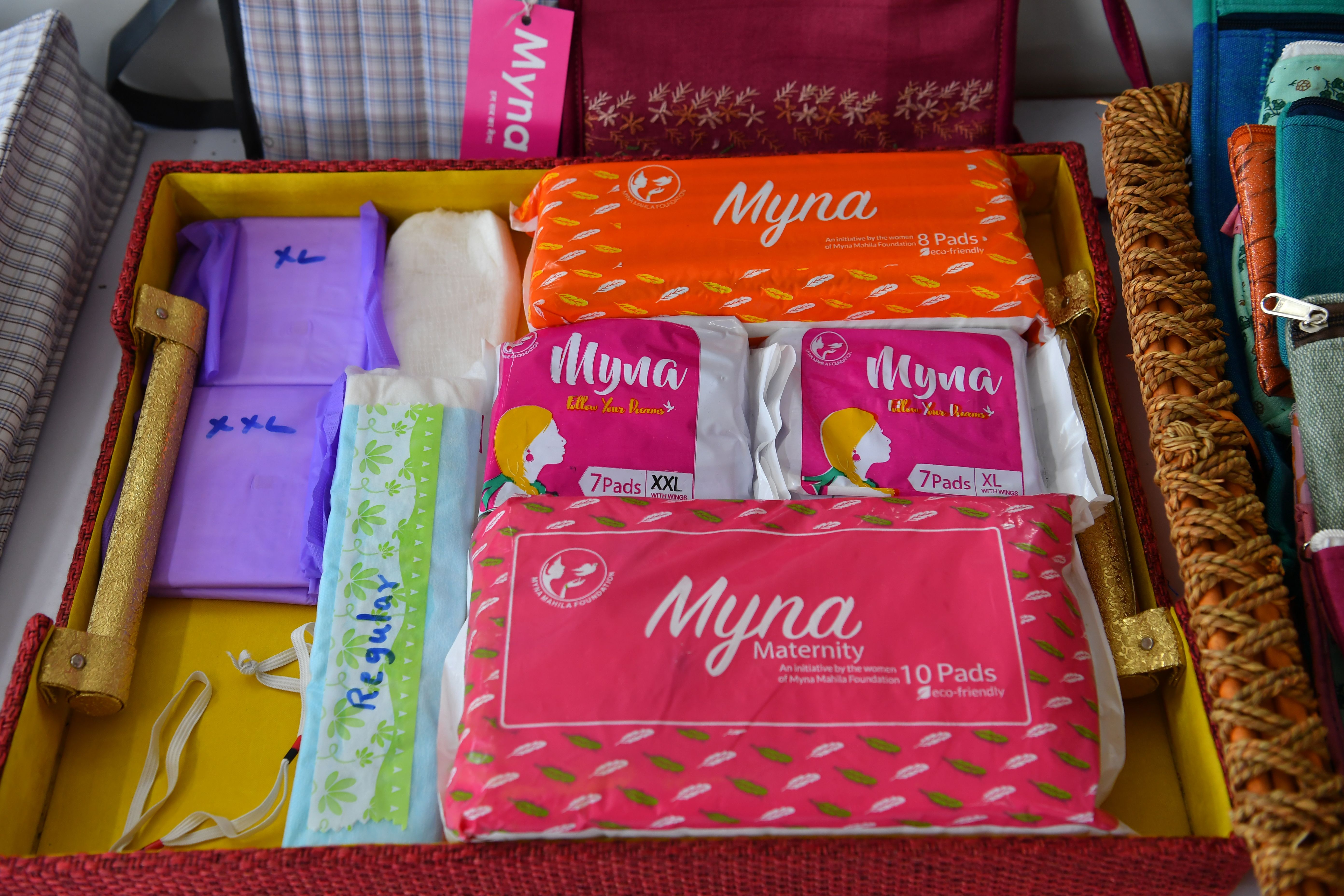The most staggering myths about periods in countries around the world
Some women on their period are banned from showering, others are banished to a different room from their husband

Your support helps us to tell the story
From reproductive rights to climate change to Big Tech, The Independent is on the ground when the story is developing. Whether it's investigating the financials of Elon Musk's pro-Trump PAC or producing our latest documentary, 'The A Word', which shines a light on the American women fighting for reproductive rights, we know how important it is to parse out the facts from the messaging.
At such a critical moment in US history, we need reporters on the ground. Your donation allows us to keep sending journalists to speak to both sides of the story.
The Independent is trusted by Americans across the entire political spectrum. And unlike many other quality news outlets, we choose not to lock Americans out of our reporting and analysis with paywalls. We believe quality journalism should be available to everyone, paid for by those who can afford it.
Your support makes all the difference.From adverts for period products that show blue liquid being poured onto pads to discreet tampon packaging designed to look like it is concealing a sweetie, periods have long been shrouded by stigma.
In fact, campaigners argue it is the taboo which surrounds periods that is a driving force behind the very notion of the UK’s “tampon tax” which was scrapped at the beginning of this year.
The axing of the tax means period products are no longer classed as “luxury, non-essential items” and taxed at 5 per cent. Nevertheless, menstrual items were subjected to even higher tax levies previously and taxed at a whopping 17.5 per cent before 2001.
But in many parts of the world, the stigma and shame associated with periods is far starker and baseless myths are highly prevalent.
Despite the fact around 300 million women and girls around the world will be on their period every single day, Plan International, a leading NGO, warns this “natural and healthy” element of life is routinely deemed “shameful and dirty”.
Take the dozens of women and girls who have died in Nepal in recent years as a direct result of an ancient tradition that banishes menstruating women to outside huts.
Plan International warns myths and erroneous information about periods leads to women and girls being excluded from day-to-day activities, which in turn “limits their life opportunities”.
Ahead of Menstrual Hygiene Day later in the week, the charity probed girls and their staff located in different nations around the world about some of the common myths and false information which persist in their respective countries.
In Brazil, they found having your period is seen to be a dirty phenomenon, with people wrongly thinking if you cook food while on your period, it can get soiled. It is also incorrectly believed that people can die if they eat mangoes, lemons or shrimps while menstruating.
While in Colombia, the charity found menstruation is viewed as an illness, with people thinking you should “stay home, touch nothing”, and try not to ever let anyone know you are on your period.
On top of this, periods are apportioned "powers" that stop women from doing particular activities such as cooking, cleaning, harvesting, carrying babies, touching plants, or doing sports.
In Guinea, some people bar girls from attending school or from talking to boys while they are on their periods, while others ban women from cooking or going in the near vicinity of a collective meal.
Whereas in Cameroon, it is deemed that those on their periods should not wash in rivers, go fishing, eat meat, or go near fresh crops such as lemon, groundnut or corn otherwise a fire will erupt there.
Women can sometimes be barred from holding a baby who is up to three-months-old while menstruating. While some think women on their periods must enter or leave the house via the window rather than walking in through the front door.
In Guatemala, some consider periods to be an illness, assuming women should not exercise, as well as not take baths or showers, or go to agricultural places. Some buy into the idea women who are on their periods should remain at home due to wrongly thinking it is possible to discern if a woman is on her period from the way she walks.
On the other hand, tampons and menstrual cups in Indonesia are rarely used and stigmatised due to the notion that placing any item in the vagina is taboo if you are not married as it is equivalent to “breaking” one’s virginity.
Meanwhile, in the Philippines people believe sour food reduces menstrual flow and if you jump up and down three times when you first get your period it will only happen for three days. Two other myths in the country include the groundless notion that having a bath while menstruating will lead to insanity, infertility and losing hair, or that periods cause anaemia.
In Ghana, people think period blood can damage the productivity of men and a married woman cannot be in the same room as her husband while menstruating. While in Honduras, some assume women are now ready to have sex and become mothers after having their first period.
But in Senegal, people are forced to conceal their period products due to the misconception that those who see such items can be cursed - especially if they are stained. What’s more, those who are menstruating are blocked from utilising open wells as the well could dry out or instead be filled with blood.


Join our commenting forum
Join thought-provoking conversations, follow other Independent readers and see their replies
Comments